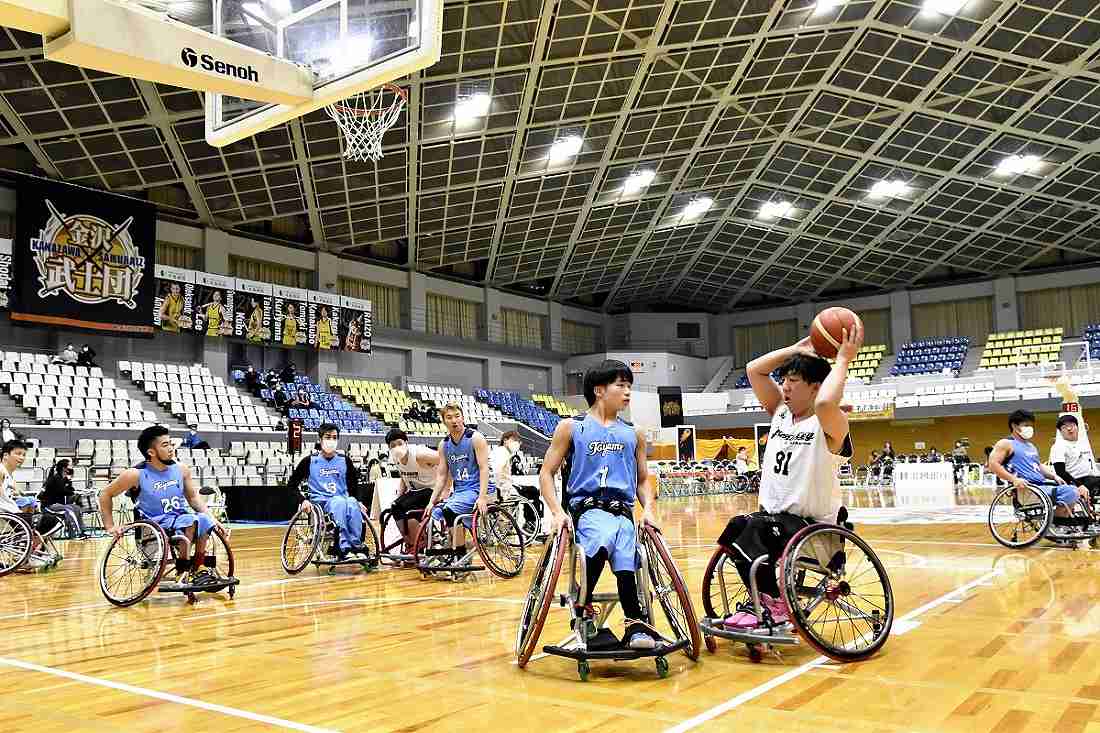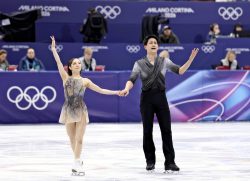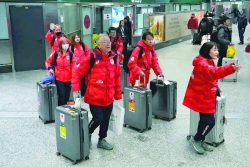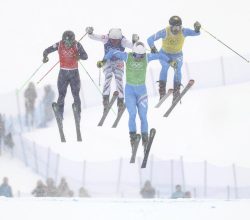Para-Sport Still Needs More Facilities, Understanding; Funding Drops as Paralympic Boost Wanes

A wheelchair basketball game is held at the Kanazawa Municipal General Gymnasium in Kanazawa in February 2023.
1:00 JST, September 11, 2024
Japan has both made and lost progress toward improving the athletic environment for para-sport.
According to a survey by the Sasakawa Sports Foundation, sports facilities where the disabled have exclusive or priority access have been established in every prefecture, in a total 150 locations.
Although the number is increasing, 17 prefectures have only one or two such facilities, making it difficult for those who need assistance when using public transportation if the facilities do not happen to be nearby.
The government has urged prefectures to set up sports centers, which are accessible and staffed by professional instructors, as bases for disabled people to casually enjoy sport. However, there are only 29 such facilities nationwide as of May.
There have also been many instances where regular gymnasiums have refused to rent equipment for para-sports due to concerns that wheelchairs and other athletic equipment may damage or stain the floor.
Rieko Takahashi, 26, a female goalball player who won a bronze medal at the Tokyo Games in 2021, said she was refused the use of a gymnasium in Tokyo in the spring of 2022. The reason given was that the floor could be damaged.
“I felt sad that there was still a lack of understanding regarding exercise for the disabled, even though Japan hosting the Paralympic Games should have raised awareness of para-sport,” she said.
“The current situation may limit the options for people with disabilities to play sports. It is essential that existing general public facilities have a better understanding of para-sport,” said Kazunari Obuchi, policy director of the foundation.
Another serious problem is the withdrawal of financial support provided to sports organizations by companies. Before the Paris Games, The Yomiuri Shimbun surveyed 25 disabled sports organizations, and 20 said that they lacked funds for their activities.
The Japanese Para-Swimming Federation has seen sponsorship income halve since the Tokyo Games due to a string of sponsors withdrawing amid the spread of COVID-19.
Many companies have abolished the division in charge of Paralympic-related activities, and it has been difficult for the federation to obtain new sponsors, according to the federation.
“Now that the Paralympic wave is dying down, we need to think of ways to appeal to sponsors to support us,” an official of the federation said.
Top Articles in Sports
-

Milano Cortina 2026: Figure Skaters Riku Miura, Ryuichi Kihara Pair Win Gold; Dramatic Comeback from 5th Place in SP
-

Milano Cortina 2026: Kokomo Murase Comes Out on Top After Overcoming Obstacles, Aiming for Greater Heights in Competition
-

Milano Cortina 2026: Riku Miura, Ryuichi Kihara Clinch Japan’s 1st Gold in Pairs Figure Skating, Rebounding from Disappointing Short Program
-

Milano Cortina 2026: Olympics-Torch Arrives in Co-Host Cortina on Anniversary of 1956 Games
-

Milano Cortina 2026: Japan’s Athletes Arrive in Italy for Milano Cortina Winter Olympics; Other Athletes to Arrive from Now
JN ACCESS RANKING
-

Japan PM Takaichi’s Cabinet Resigns en Masse
-

Japan Institute to Use Domestic Commercial Optical Lattice Clock to Set Japan Standard Time
-

Israeli Ambassador to Japan Speaks about Japan’s Role in the Reconstruction of Gaza
-

Man Infected with Measles Reportedly Dined at Restaurant in Tokyo Station
-

Videos Plagiarized, Reposted with False Subtitles Claiming ‘Ryukyu Belongs to China’; Anti-China False Information Also Posted in Japan























